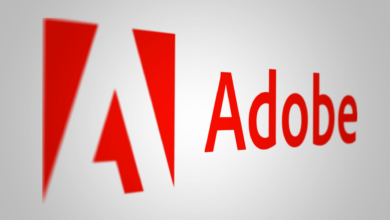The Top 10 Content Management Systems for Small Businesses

Introduction
Content Management Systems (CMS) are essential tools for small businesses looking to manage, create, and update their online content. With the wide variety of CMS options available, choosing the right one can be a daunting task. In this blog, we will explore the top 10 CMS platforms that are perfect for small businesses.
1. WordPress
WordPress is one of the most popular CMS platforms for small businesses. It offers a user-friendly interface, a wide range of themes and plugins, and excellent SEO capabilities. WordPress is highly customizable and allows businesses to create professional-looking websites without needing advanced technical skills.
Key Features:
- Easy to use
- Customizable themes and plugins
- SEO-friendly
2. Joomla
Joomla is another popular CMS platform that is suitable for small businesses. It offers a robust set of features, including advanced user management, content scheduling, and multilingual support. Joomla is ideal for businesses looking to create complex websites with unique functionalities.
Key Features:
- Advanced user management
- Content scheduling
- Multilingual support
3. Drupal
Drupal is a powerful CMS platform that is perfect for small businesses with more complex website needs. It offers advanced content management capabilities, robust security features, and excellent scalability. Drupal is ideal for businesses looking to create highly customized websites.
Key Features:
- Advanced content management
- Robust security features
- Highly scalable
4. Wix
Wix is a popular website builder that offers a simple drag-and-drop interface, making it easy for small businesses to create professional-looking websites. Wix also offers a wide range of templates and plugins, making it easy to customize your site to fit your brand.
Key Features:
- Drag-and-drop interface
- Wide range of templates and plugins
- Customizable design
5. Shopify
Shopify is a popular CMS platform for small businesses looking to create an online store. It offers a user-friendly interface, integrated payment gateways, and a wide range of e-commerce features. Shopify is perfect for businesses looking to sell products online.
Key Features:
- Integrated payment gateways
- E-commerce features
- User-friendly interface
6. Squarespace
Squarespace is another popular website builder that offers a wide range of templates and customization options. It is perfect for small businesses looking to create visually stunning websites without needing advanced technical skills. Squarespace also offers integrated e-commerce features.
Key Features:
- Visually stunning templates
- Customization options
- Integrated e-commerce features
7. Magento
Magento is a powerful e-commerce platform that is perfect for small businesses looking to create highly customizable online stores. It offers a wide range of features, including advanced product management, marketing tools, and SEO capabilities. Magento is ideal for businesses looking to scale their online stores.
Key Features:
- Advanced product management
- Marketing tools
- SEO capabilities
8. Weebly
Weebly is a user-friendly website builder that is perfect for small businesses looking to create simple websites. It offers a drag-and-drop interface, a wide range of templates, and e-commerce features. Weebly is ideal for businesses looking to get online quickly.
Key Features:
- Drag-and-drop interface
- Wide range of templates
- E-commerce features
9. Blogger
Blogger is a free blogging platform owned by Google that is perfect for small businesses looking to create a simple blog. It offers a user-friendly interface, customization options, and integration with Google services. Blogger is ideal for businesses looking to create content and engage with their audience.
Key Features:
- Free blogging platform
- User-friendly interface
- Integration with Google services
10. Ghost
Ghost is a modern blogging platform that is perfect for small businesses looking to create a sleek and minimalist blog. It offers a user-friendly interface, advanced content management capabilities, and excellent SEO features. Ghost is ideal for businesses looking to focus on creating high-quality content.
Key Features:
- Sleek and minimalist design
- Advanced content management
- SEO features
FAQs
1. What is a Content Management System (CMS)?
A Content Management System (CMS) is a software platform that allows users to create, manage, and update digital content without needing advanced technical skills. CMS platforms are essential tools for businesses looking to maintain an online presence.
2. Which CMS platform is best for small businesses?
The best CMS platform for a small business depends on its specific needs and goals. WordPress is a popular choice for its ease of use and versatility, while Shopify is ideal for businesses looking to sell products online. It’s important to consider factors such as customization options, scalability, and budget when choosing a CMS platform.
3. How do I choose the right CMS platform for my small business?
When choosing a CMS platform for your small business, consider factors such as ease of use, customization options, scalability, and budget. It’s also important to research the features and capabilities of each platform to ensure it aligns with your business goals.



